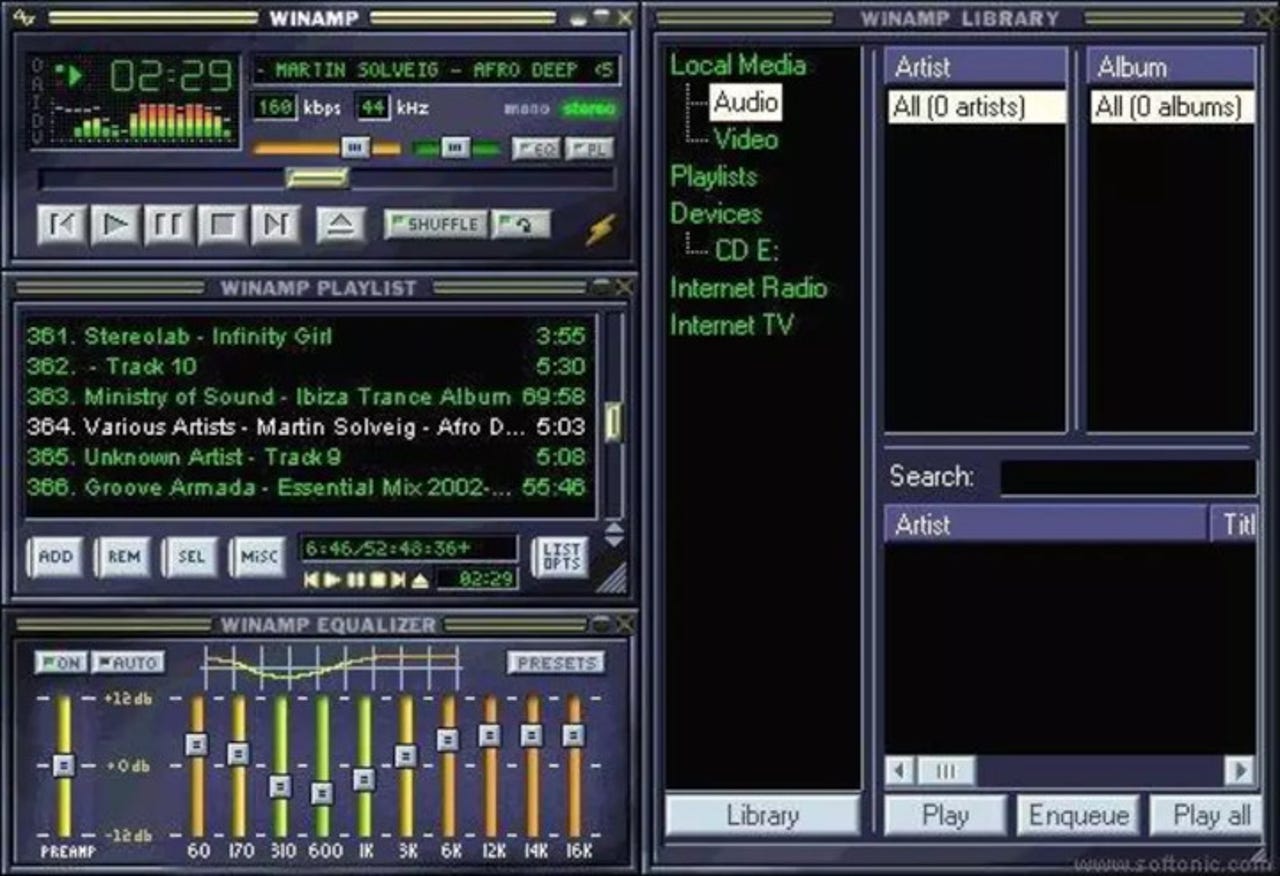
































If you were a teenager in the year 2000, odds are you were using Winamp to listen to the MP3 music tracks you found on Napster or had ripped from your CDs. Today, you most likely listen to your tunes on Spotify orApple Music . But Winamp wants to came a comeback -- from a nostalgic favorite to being your music player for 2024. One way they're planning to achieve this is by opening the application source code to developers on September 24, 2024.
Also: The best VPN for streaming: Expert tested and reviewed
Winamp isnotopen-sourcing its code. As this misconception has been circulating, it's important to set the record straight. The current owner, Llama Group, has plans for the app that are not open-source compatible.
Instead, as Winamp CEO Alexandre Saboundjian said, "Winamp will remain the owner of the software and will decide on the innovations made in the official version." The sort-of open-source version is going by the name FreeLLama.
While Winamp hasn't said yet what license it will use for this forthcoming version, it cannot be open source with that level of corporate control.
Why are they doing it? The company wants "developers worldwide [to] contribute their expertise, ideas, and passion to help this iconic software evolve." Good luck with that. If you want to contribute to Winamp, would-be developers can sign up here.
This new code will be only for Windows versions. The Mac, Android, and iOS editions will continue to be entirely proprietary.
In the meantime, Winamp is putting the final touches on a new take on its software. When the next version is released on July 1, it will incorporate a platform to enable artists or labels to find new ways to monetize their music and more cleanly incorporate streaming.
Also: These two old-school music players for Linux let me fine-tune my listening experience
This is all a long way from the program Justin Frankel and Dmitry Boldyrev created in 1997. WinAmp became a hit then, thanks to its lightweight design and customizability through skins and plugins. WinAmp achieved peak popularity in the late 1990s and early 2000s.
While it's no longer on every Windows PC on the planet -- as it seemed to be back then -- it's still something of a cult favorite. If Winamp is successful in refreshing its software and business plans, it may yet regain a spot on today's computers.
 Hot Tags :
Home & Office
Home Entertainment
Hot Tags :
Home & Office
Home Entertainment